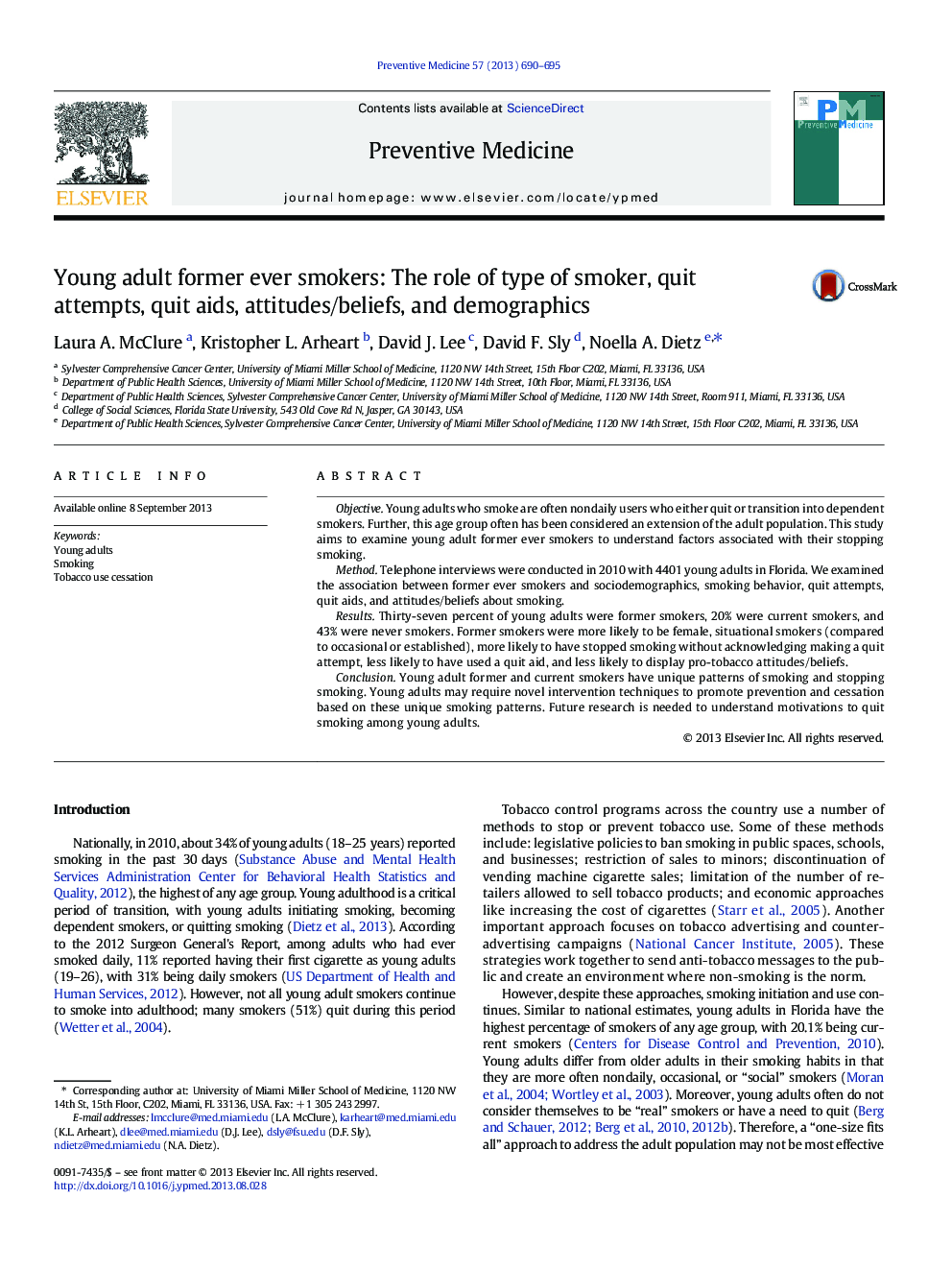| Article ID | Journal | Published Year | Pages | File Type |
|---|---|---|---|---|
| 6047551 | Preventive Medicine | 2013 | 6 Pages |
â¢We examined young adult ever smokers and the quitting methods they used.â¢We compare young adult former ever smokers to current smokers.â¢Former ever smokers quit without traditional aids or actual quit attempts.â¢Effective and acceptable quit aids for young adults should be assessed.â¢Young adult cessation messages should be unique from those for youth or adults.
ObjectiveYoung adults who smoke are often nondaily users who either quit or transition into dependent smokers. Further, this age group often has been considered an extension of the adult population. This study aims to examine young adult former ever smokers to understand factors associated with their stopping smoking.MethodTelephone interviews were conducted in 2010 with 4401 young adults in Florida. We examined the association between former ever smokers and sociodemographics, smoking behavior, quit attempts, quit aids, and attitudes/beliefs about smoking.ResultsThirty-seven percent of young adults were former smokers, 20% were current smokers, and 43% were never smokers. Former smokers were more likely to be female, situational smokers (compared to occasional or established), more likely to have stopped smoking without acknowledging making a quit attempt, less likely to have used a quit aid, and less likely to display pro-tobacco attitudes/beliefs.ConclusionYoung adult former and current smokers have unique patterns of smoking and stopping smoking. Young adults may require novel intervention techniques to promote prevention and cessation based on these unique smoking patterns. Future research is needed to understand motivations to quit smoking among young adults.
